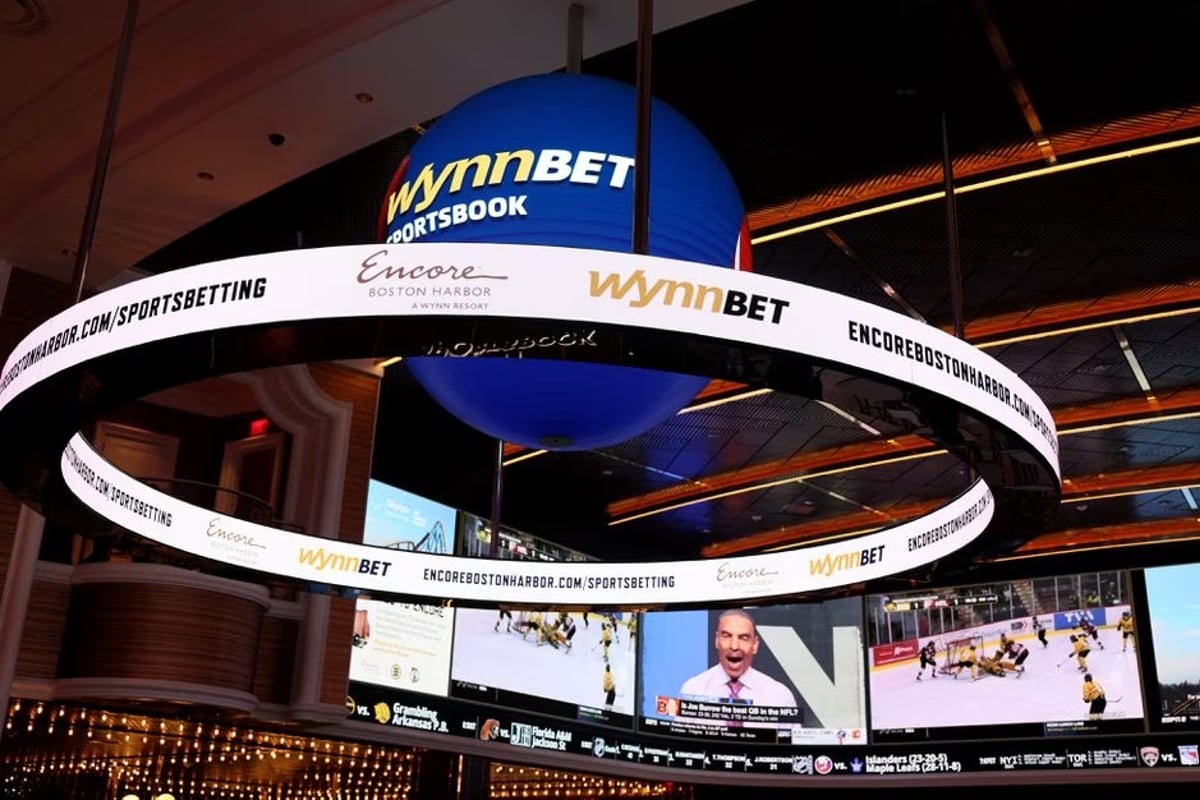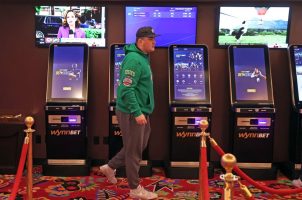Massachusetts Sports Betting Self-Exclusion Program Underway
Posted on: March 22, 2023, 12:30h.
Last updated on: March 22, 2023, 11:23h.
In-person sports betting began at Massachusetts’ three brick-and-mortar casinos on January 31. Online sportsbooks were permitted to begin accepting wagers over the internet on March 10.

In anticipation that more legal gaming could result in more problem gambling, the Massachusetts Gaming Commission (MGC), in conjunction with The Massachusetts Council on Gaming and Health, has developed a self-exclusion program specific to sports betting. Anyone aged 21 and older, the legal gaming age in the commonwealth, can inform the MGC that they wish to omit themselves from legal sportsbooks.
Known as the Sports Wagering Voluntary Self-Exclusion (VSE), enrollees are prohibited from entering the sports wagering area of a retail sportsbook. Self-excluded sports betting individuals also lose access to online sports betting platforms regulated by the MGC.
Enrollees can pick a one, three, or five-year term for exclusion. A lifetime ban becomes available after an enrollee completes one of the shorter terms.
The Sports Wagering Voluntary Self-Exclusion Program is administered by the MGC, with the list regularly updated and distributed to the state’s licensed entities.
Two Self-Exclusion Programs
Before legal sports betting started in Massachusetts, the MGC managed a Gaming Voluntary Self-Exclusion Program that operates similarly to the new sports betting VSE. Persons who register with the Gaming VSE are prohibited from entering the gaming space of any licensed casino inside the state.
The MGC says someone can self-exclude from sports betting but not casino gambling, and vice versa. The state also allows someone to self-exclude from casino gaming and sports betting through one dual registration.
With the legalization of sports betting this January, Sports Wagering VSE serves as the next natural expansion in the state’s responsible gambling efforts,” read a statement to Casino.org from the Massachusetts Council on Gaming and Health. “The rollout’s timing is intentional — on the heels of both Massachusetts mobile sports betting kicking off and during the year’s biggest NCAA event.”
Massachusetts’ self-exclusion lists remain confidential. Joining is free, with trained problem gambling support staff available 24/7.
Those interested in registering can contact the MGC at 617-533-9737 or by emailing vse@massgaming.gov. Enrollment is also available at GameSense Info Centers inside the three casinos and online at www.gamesensema.com.
Sports Betting Increasing Participation
Single-game sports betting was limited to Nevada until May 2018, when the US Supreme Court overturned the federal sports gambling ban called the Professional and Amateur Sports Protection Act. More than 30 states have since legalized sports betting, and the new legal gaming channels have reached a demographic that brick-and-mortar casinos have been desperately seeking for years — the millennial.
Pew Research Center reported last fall that almost 20% of the US adult population is now betting on sports. The participation rate for ages 18-49 was even higher at 22%.
More Blacks (27%) and Hispanics (24%) reported betting on sports than Whites (18%) and Asians (10%). Participation by income was spread evenly, with upper-income earners (22%) partaking more than middle- and lower-income earners, polling at 19%.
Pew also concluded that the general public isn’t exactly happy that legal sportsbooks have spread across the US. While 34% of respondents said, the fact that legal sports betting is widespread is “a bad thing for society,” only 8% said it’s “a good thing for society.”
Related News Articles
Massachusetts Gaming Chair Expresses Sports Betting Frustrations
Most Popular
Tropicana Las Vegas to be Imploded, Tentative Date Set
VEGAS MYTHS BUSTED: Golden Gate is the Oldest Casino in Vegas
DraftKings Leads Bank Sports Betting Survey, ESPN Bet Surprises
Most Commented
-
End of the Line for Las Vegas Monorail
— April 5, 2024 — 90 Comments -
Long Island Casino Opponents Love New York Licensing Delays
— March 27, 2024 — 5 Comments
















No comments yet